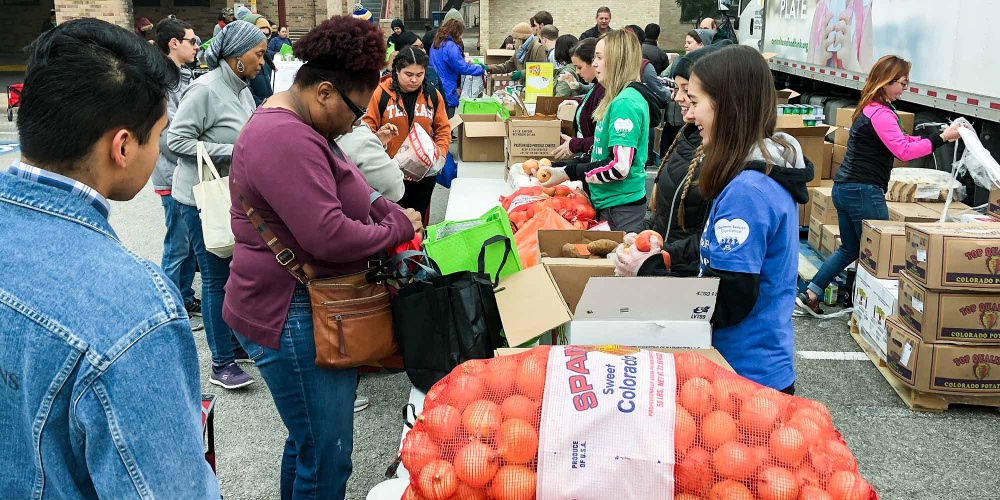#RealCollege Survey results show ACC students lack food & housing security
Nearly two-thirds of Austin Community College (ACC) students struggled to find affordable food and housing in the past year, according to the 2019 #RealCollege Survey Institution Report released February 12.
The report, prepared by the Hope Center for College, Community, and Justice at Temple University for ACC, is an annual assessment of basic needs insecurity among college students. Findings show that ACC's results are on par with other two-year institutions.
More than 3,000 ACC students participated in the survey. Of those respondents, more than half (53 percent) are more likely to experience housing insecurity, which is a higher rate than students at two-year institutions nationwide (50 percent). Of those, 27 percent faced rent or mortgage increases that made it difficult to pay, 21 percent were unable to pay the full amount of rent or mortgage, and 19 percent could not pay utilities in full.
"The results of this report are not surprising. Over the past few years, we have been working hard to support our students more holistically," says Dr. Richard Rhodes, ACC president/CEO.
"The college is launching a public awareness push to ensure that all of our students are aware of the free support services and resources available to help them succeed. From free tutoring and the student emergency fund, to child care and career services, we want our students to know that ACC cares and that their success matters to us."
In January, ACC hosted Dr. Sara Goldrick-Rab, founder of the Hope Center for College, Community, and Justice, to learn more about ACC student struggles and discuss new opportunities to better support students.
"It was an eye-opening discussion, and the college is ready to use this information to expand our efforts as we move forward," says Dr. Rhodes.
Additional findings from the report indicate:
- 17 percent of respondents at ACC have experienced homelessness or living conditions that are considered signs of homelessess in the previous year.
- 12 percent indicated they have lived temporarily with a relative, friend, or couch surfed.
- 3 percent lived in a hotel or motel without a permanent home to return to.
- 2 percent lived in a closed area/space with a roof not meant for human habitation.
The report also found that 42 percent of ACC students faced food insecurity in the prior 30 days, the same percentage as students at two-year institutions nationwide. Food insecurity issues range from being unable to afford to eat balanced meals (45 percent) to worrying about running out of food before they have money to buy more (44 percent).
The report also found that some students are at higher risk of basic needs insecurity than others.
Now in its fifth year, the #RealCollege survey was administered at 227 two- and four-year higher education institutions across the United States.
See the full #RealCollege Survey Report for ACC here.
